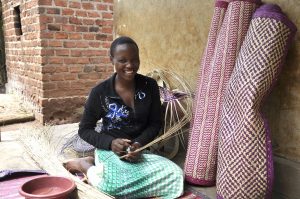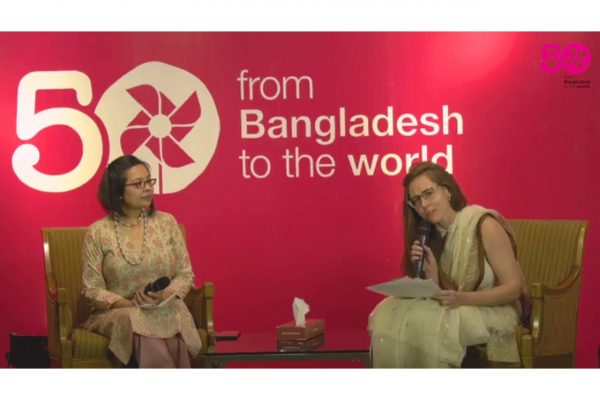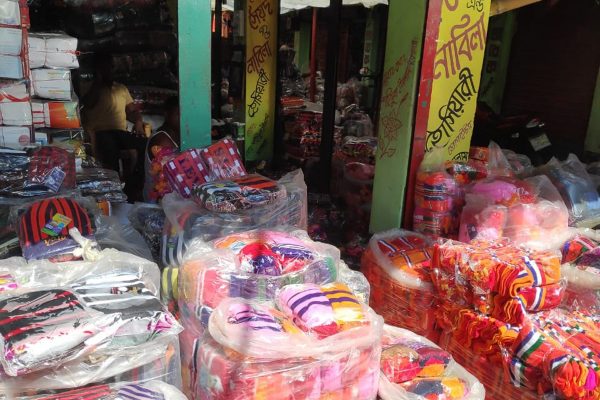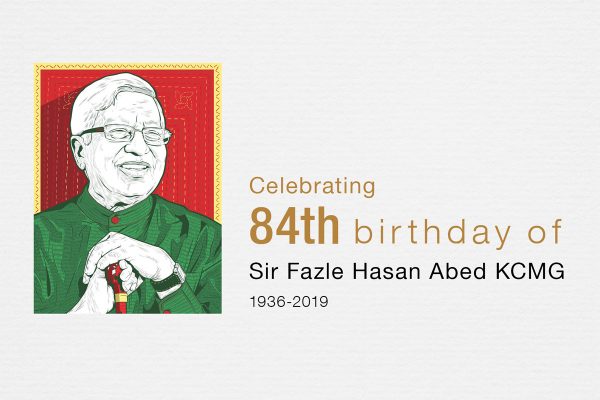Talk to the youth
Reading Time: 2 minutes
If you want to help spur the economy and improve people’s lives over the long term in a place like Uganda – the youngest country on earth, with a median age of 14 – then you have to talk and listen to young people like Brenda Masika. That’s one of the key lessons of BRAC’s partnership with The MasterCard Foundation, which has enabled a speedy scale-up in a country facing a massive youth bulge.
If you want to help spur the economy and improve people’s lives over the long term in a place like Uganda – the youngest country on earth, with a median age of 14 – then you have to talk and listen to young people like Brenda Masika. That’s one of the key lessons of BRAC’s partnership with The MasterCard Foundation, which has enabled a speedy scale-up in a country facing a massive youth bulge.
Brenda’s story is like that of many young Ugandans. Her hopes of completing her education were dashed when her father, a driver of a boda-boda (Uganda’s ubiquitous motorcycle taxi), pulled her out of school in 2010 because he could no longer afford the fees. In a country facing soaring inflation, it’s a dilemma all too common with families struggling to lift themselves out of poverty.
Fortunately, Brenda, pictured above, was part of BRAC’s Empowerment and Livelihood for Adolescents program – and the social support network from like-minded girls that comes along with it.
In the “safe space” of the club, where girls sing, dance, and play games, away from the pressures of male-centric society, Brenda received training on financial literacy, savings and investment. Her grandmother had been in the handicrafts trade for many years, so she began weaving mats and baskets like the ones on the right side of the picture.
She found that one of the problems she was facing was too frequent trips to the supplier to stock up on raw material, a problem compounded by rising costs. Following financial training, a loan of $80 made all the difference.
She’s now has the confidence she lacked before, as you can see. She’s in business and saving money – a proof point of another of the lessons of BRAC’s ELA, that social empowerment and financial empowerment go hand in hand.
And school? She no longer needs money from her father. She says she’s saved enough money to start going back to class.
Because “scale” is part of BRAC’s DNA, we didn’t just do this in a few villages, or with a few girls. The ELA clubs now count 50,000 members in Uganda alone – and 285,000 worldwide, in Bangladesh, Uganda, Tanzania, Afghanistan, South Sudan and, most recently, Haiti and Sierra Leone.
Evidence of the program’s success is beyond anecdotal. As we reported yesterday, it’s been rigorously tested and shown to have positive impacts on pregnancy rates and savings. (For more, read our article in Unicef’s Child Poverty Insights newsletter from November 2012.)
Most large development organizations came from the richer northern hemisphere, with global headquarters in Washington, New York, London or other developed Western capitals. There’s no innate virtue in solutions that come from a developing country like Bangladesh. To be sure, there’s plenty of good work being done by Western NGOs. But we do believe BRAC’s unique experience in Bangladesh gives it valuable insights.
More importantly, though, it’s the insights of people like Brenda Masika that matter. When BRAC enters a country or a region for the first time, the first thing we do is talk to the women. Find out about their real, everyday needs and opportunities.
And in any country with a growing population of young people facing a challenging climb out of poverty, we’ll add the following: Talk to the young.
See also: Susan Davis, “Enabling Entrepreneurial Ecosystems,” Innovations (MIT Press, 2012)






